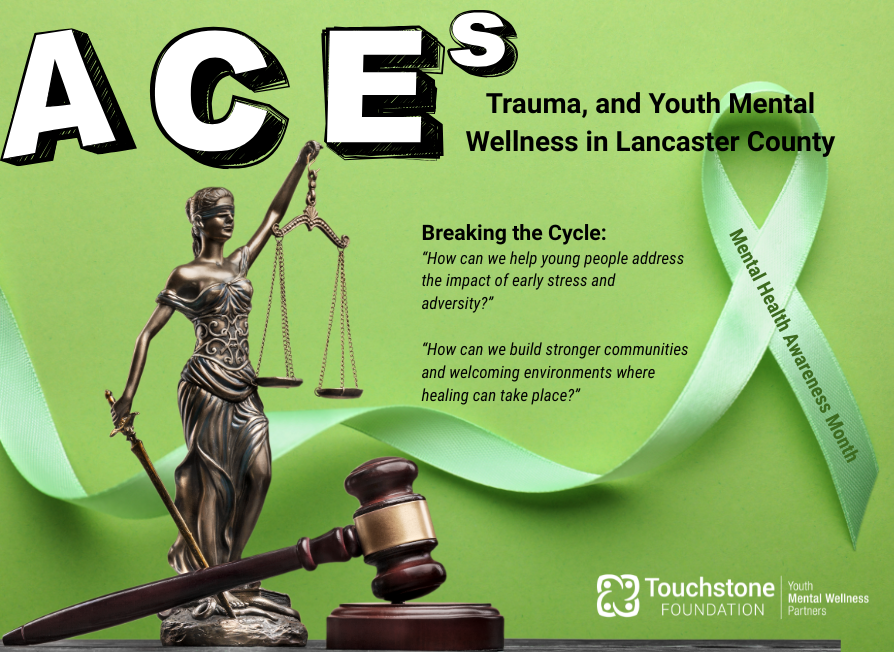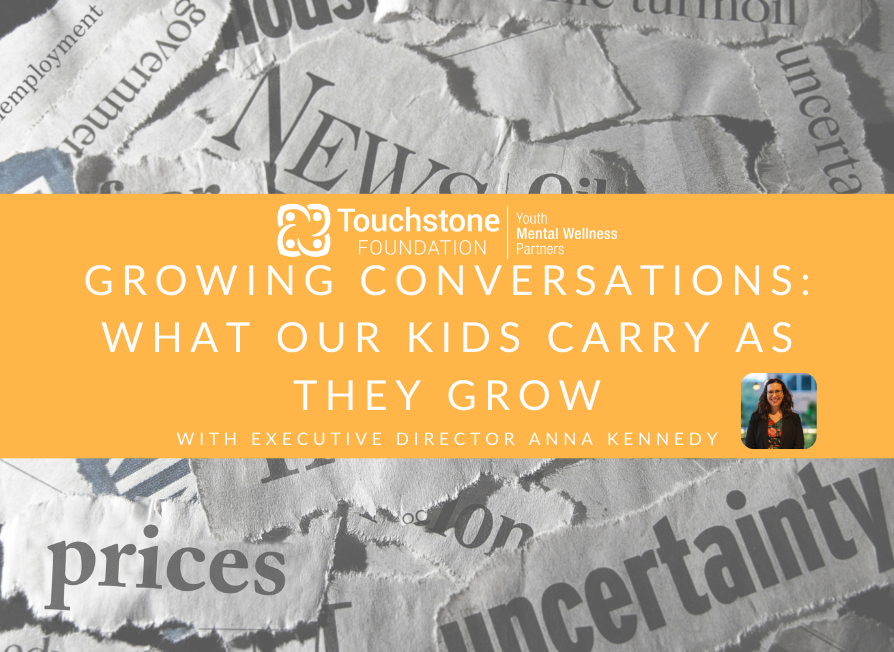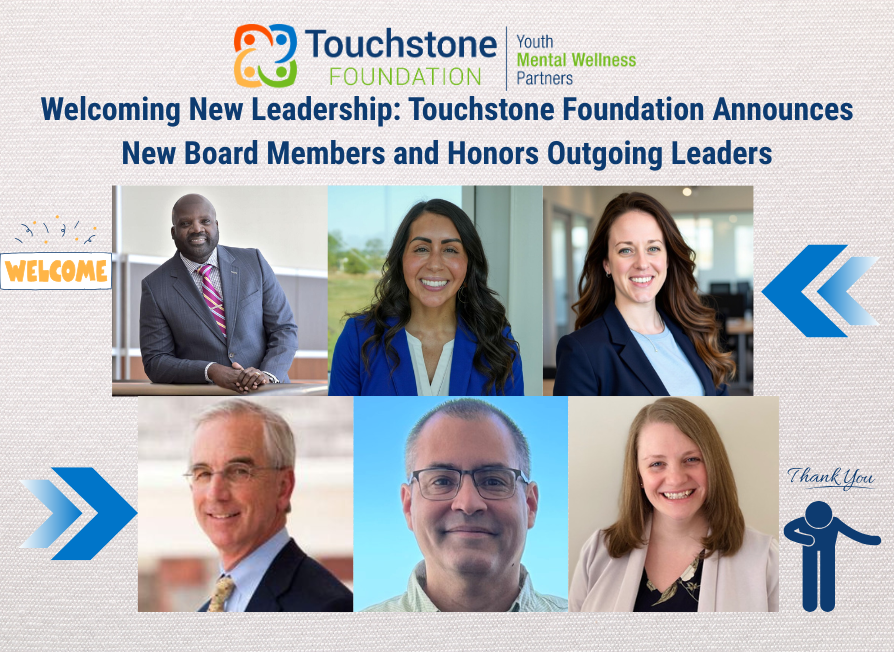
Breaking the Cycle: Addressing ACEs, Trauma, and Youth Mental Wellness in Lancaster County
Adverse Childhood Experiences (ACEs) can significantly influence a young person’s development, affecting their mental, emotional, and physical well-being. ACEs—such as experiences of instability in the home, exposure to violence, or a lack of consistent care—can lead to long-term stress that may impact brain development and increase the risk of mental health challenges, academic difficulties, and other life outcomes.
Today’s young people face added stressors—like pressures from social media, economic hardship, and the effects of recent public health crises—that can amplify the effects of early adversity.
It is crucial to understand the prevalence of ACEs and to recognize the importance of providing support. Not all individuals who face ACEs experience lasting negative effects. Positive experiences, consistent support, and access to quality care can help young people heal and thrive.
This raises important questions:
- How can we help young people address the impact of early stress and adversity?
- How can we build stronger communities and welcoming environments where healing can take place?
At Touchstone Foundation, our mission is to support youth mental wellness in Lancaster County. We work to increase access to care, promote trauma-informed practices, and fund programs that foster supportive environments for children and young adults.
Understanding ACEs and Their Impact on Brain Development
Exposure to ACEs can affect the brain’s structure and function—especially in areas involved in emotional regulation and decision-making. Research shows that prolonged stress in early life may lead to:
- Increased activity in the amygdala, linked to heightened emotional sensitivity.
- Delayed development in the prefrontal cortex, which influences self-control and problem-solving.
- Dysregulation in the stress response system, increasing vulnerability to mental health challenges.
These effects are not permanent. Early support, connection with trusted adults, and access to mental health care can reduce these risks and help young people develop resilience.
Modern Stressors and Youth Mental Health
In addition to ACEs, today’s youth face new sources of stress, including:
- Online pressures and cyberbullying, which may affect self-esteem and emotional well-being.
- Lingering effects of the COVID-19 pandemic, which disrupted routines and social connections.
- Financial hardship, housing instability, or other forms of adversity that affect overall well-being.
Young people benefit from strong connections with adults, access to care, and structured support. Mental health programming must go beyond treatment—it must also create environments where youth feel heard, valued, and supported.
Listening to Youth and Expanding Support
Through our Lancaster County Youth Needs Assessment, Touchstone Foundation has identified common themes voiced by youth and families:
- Easier access to mental health services, including shorter wait times and transportation options.
- Outreach efforts to reduce stigma around mental health support.
- Tools and education for families to navigate the digital world and protect mental well-being.
- Reliable health information to guide parents and caregivers.
- More trained mentors and role models to connect with youth.
To meet these needs, Touchstone Foundation issued a 2023 Request for Proposals (RFP) and funded several key community partnerships:
- CASA (Court Appointed Special Advocates) – providing support and consistent adult relationships for youth in the foster care system.
- Bench Mark Program – offering structured guidance and mentorship.
- Big Brothers Big Sisters – creating long-term, one-on-one mentorship connections.
These programs help create supportive, inclusive environments where youth can build confidence, connect with others, and access the help they need.
Honoring a Legacy: The Bill Zee Legacy Scholarship
Supporting youth also means investing in the professionals who will care for them in the future. The Bill Zee Legacy Scholarship honors the life and service of Bill Zee, an advocate and leader in trauma-informed care and youth mental health.
Scholarship Overview:
- Award: $5,000 toward college tuition
- Eligibility: Undergraduate students entering their junior or senior year, pursuing a degree related to mental health or working with youth
- Purpose: To ease financial challenges and support students committed to helping young people overcome adversity
Scholarship Goals:
- Encourage future mental health professionals who are dedicated to youth-focused care
- Reduce barriers for students pursuing psychology, social work, counseling, or related fields
- Carry forward Bill Zee’s commitment to resilience and healing in schools and communities
By investing in these students, Touchstone Foundation helps ensure that future leaders in care and support have the training and resources they need.
A Call to Action: Creating a Culture of Healing
ACEs and early trauma don’t have to define a child’s future. With timely care, mentorship, and community support, young people can overcome adversity and build fulfilling lives.
Now is the time to:
- Improve access to mental health care by reducing financial and logistical barriers.
- Expand mentorship opportunities to connect youth with trusted, caring adults.
- Create welcoming environments in schools and neighborhoods that promote well-being.
- Support scholarships that build the future mental health workforce.
Touchstone Foundation remains deeply committed to advancing youth mental wellness in Lancaster County. Through programs, advocacy, and collaboration, we aim to foster healing and help every young person reach their potential.
Learn more about the Bill Zee Legacy Scholarship and how you can support youth mental health by contributing to our scholarship fund and mission to build a stronger mental health talent pipeline in Lancaster County.






